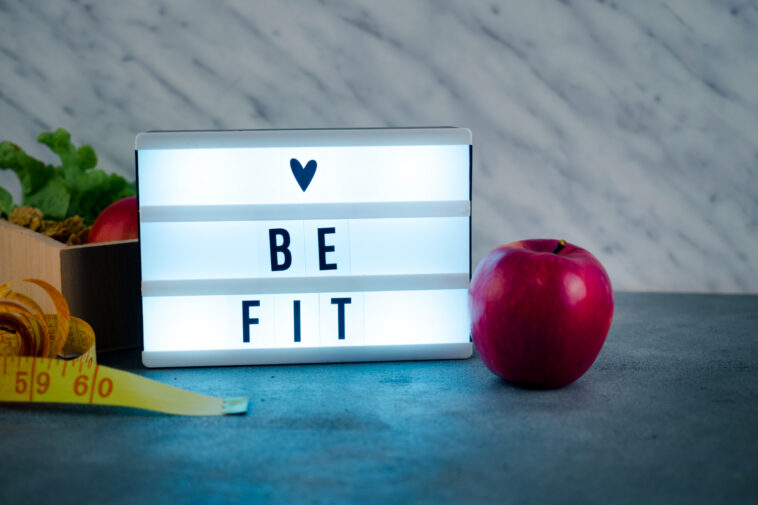Losing weight can feel overwhelming, especially when we’re bombarded with fad diets and complicated workout routines. But the truth is, you don’t need extreme measures to reach your weight loss goals. In fact, the simpler, more sustainable changes are often the ones that make the biggest difference. Here, I’ll share some of the easiest, most effective tips that helped me lose weight and keep it off—without giving up the things I love or turning my life upside down.
Set Small, Realistic Goals
One of the first things I learned is that big, ambitious goals are great, but they can also be intimidating. Instead of aiming to lose a large amount of weight in a short period, I started setting small, achievable goals. This made the process feel more manageable and gave me small victories to celebrate along the way.
- Break Down Big Goals: I started by aiming to lose 5 pounds rather than focusing on the entire amount I wanted to lose. These mini-goals kept me motivated and gave me a sense of accomplishment.
- Focus on Habits: Instead of only tracking my weight, I also tracked small habits like drinking more water, walking more, or cooking at home more often. This helped me build a foundation for lasting change.
By focusing on small steps, I found it easier to stick with my goals and avoid the frustration that often comes with big, distant targets.
Fill Your Plate with Whole Foods
Eating more whole, unprocessed foods was a game-changer for me. I realized that I could eat satisfying meals, feel full, and still lose weight without having to count every calorie. Foods like vegetables, fruits, lean proteins, and whole grains became the main staples of my diet.
- Fiber-Rich Vegetables: Leafy greens, broccoli, carrots, and other fiber-rich vegetables kept me feeling full and provided plenty of nutrients without a lot of calories.
- Protein for Satisfaction: I included lean proteins like chicken, fish, beans, and tofu in every meal. Protein helped me feel full for longer and made it easier to control cravings.
- Whole Grains and Healthy Fats: Foods like quinoa, brown rice, nuts, and avocado added flavor and nutrients, making my meals more enjoyable.
Focusing on whole foods allowed me to eat without guilt, enjoy my meals, and feel satisfied—all while making progress toward my weight loss goals.
Watch Your Portion Sizes
For a long time, I thought I had to give up my favorite foods to lose weight, but I learned that portion control made a bigger impact than eliminating foods entirely. By enjoying smaller portions of my favorite meals, I could still indulge without going overboard.
- Smaller Plates, Smaller Portions: Using smaller plates helped me visually feel like I was eating more. It’s a simple trick, but it made a huge difference.
- Mindful Eating: I focused on eating slowly and paying attention to when I felt full. This helped me enjoy my meals more and avoid overeating.
Once I realized that I didn’t have to give up the foods I loved, losing weight became a lot more enjoyable and sustainable.
Stay Active in Ways You Enjoy
Exercise was another area where I learned to be flexible. I used to think I had to do intense workouts to see results, but I discovered that simply staying active in ways I enjoyed was just as effective.
- Find Fun Activities: I started dancing, going on nature walks, and even doing home workouts to music. These activities were fun, and I looked forward to them, which made it easier to stay consistent.
- Make Movement a Habit: Instead of thinking about “exercise,” I thought about ways to stay active. Walking, stretching, and moving around during the day added up and helped me burn calories naturally.
By focusing on activities I enjoyed, I was able to make movement a part of my daily routine without feeling pressured or exhausted.
Prioritize Sleep and Manage Stress
Sleep and stress were two factors that had a huge impact on my weight loss journey. When I was tired or stressed, I found myself reaching for unhealthy snacks or skipping workouts. Prioritizing sleep and managing stress helped me feel better and make healthier choices.
- Aim for Quality Sleep: I started aiming for 7–8 hours of sleep each night. This boosted my energy and helped reduce cravings for sugary snacks.
- Practice Relaxation Techniques: Stress-relieving activities like meditation, journaling, and deep breathing helped me stay calm and focused, which made it easier to stick with my healthy habits.
When I took care of my sleep and stress levels, I noticed that I had more energy and felt more in control of my choices.
Allow Flexibility and Balance
One of the most important lessons I learned was that I didn’t have to be perfect to see results. Allowing myself flexibility—like enjoying a treat now and then—made a huge difference in my mindset. I no longer felt restricted, and I was able to stick with my goals in the long term.
- Plan for Treats: I found that planning for treats helped me enjoy them without guilt. For example, I might plan for a dessert on the weekend or a special dinner out. This kept me from feeling deprived.
- Follow the 80/20 Rule: I tried to eat healthy, whole foods 80% of the time and allowed myself flexibility for the remaining 20%. This balance kept me on track without feeling restricted.
By allowing myself to enjoy treats in moderation, I found that I could stay committed to my goals while still enjoying my favorite foods.
Focus on Consistency, Not Perfection
Weight loss isn’t about being perfect—it’s about being consistent. There were days when I didn’t make the best choices or didn’t feel motivated to exercise, but I reminded myself that one day didn’t define my entire journey. I learned to forgive myself and keep moving forward.
- Embrace Setbacks as Part of the Process: If I had a setback, I didn’t dwell on it. I treated it as a learning experience and focused on getting back on track the next day.
- Celebrate Progress: I made it a point to celebrate every small victory, whether it was losing a pound or fitting into a smaller size. These moments kept me motivated and reminded me of how far I’d come.
Focusing on consistency and celebrating progress helped me stay positive and motivated, even on the tougher days. It reminded me that every small step was a step in the right direction.
Conclusion: Keep It Simple and Sustainable
My journey to losing weight and keeping it off wasn’t about drastic changes or deprivation—it was about making small, manageable changes that I could maintain over time. By focusing on whole foods, portion control, enjoyable movement, and balance, I was able to reach my goals in a way that felt natural and sustainable.
If you’re on your own weight loss journey, remember that it doesn’t have to be complicated. Start with small changes, be kind to yourself, and keep moving forward. Weight loss is a journey, and with patience and persistence, you can achieve your goals and enjoy a healthier, happier life.
FAQ (Frequently Asked Questions)
- Can I lose weight without extreme dieting? Yes! A balanced, whole-foods-based approach with mindful portion control can be effective for weight loss without the need for extreme dieting.
- What if I don’t enjoy exercise? Try finding activities you enjoy, like walking, dancing, or yoga. Staying active doesn’t have to mean going to the gym or doing intense workouts.
- How important is consistency in weight loss? Consistency is more important than perfection. Small, consistent steps toward your goals add up over time and lead to sustainable progress.
- How can I handle cravings? Practicing portion control and allowing yourself treats in moderation can help you enjoy your favorite foods without overindulging.
- What role do sleep and stress play in weight loss? Poor sleep and high stress can increase cravings and make it harder to stick to healthy habits. Prioritizing sleep and managing stress can support your weight loss journey.
Remember, everyone’s journey is unique. Take it one day at a time, celebrate your progress, and enjoy the process of building a healthier, happier lifestyle!


